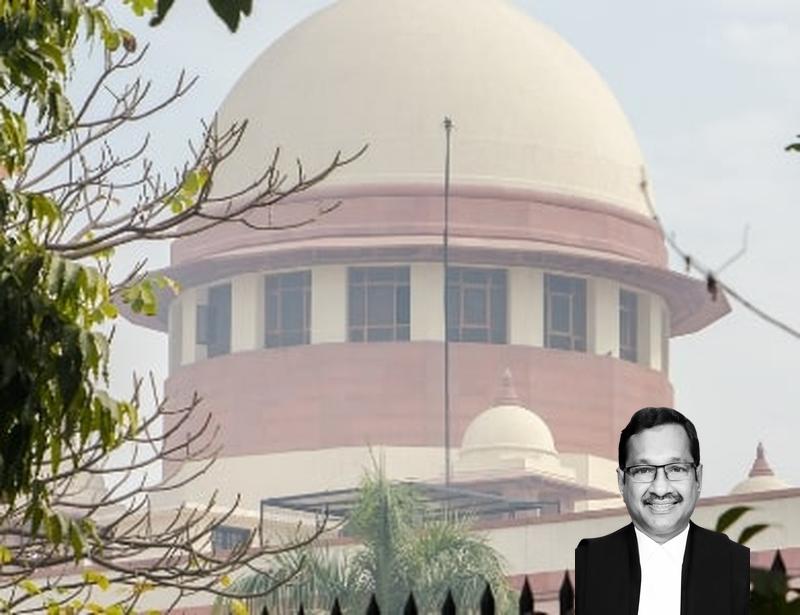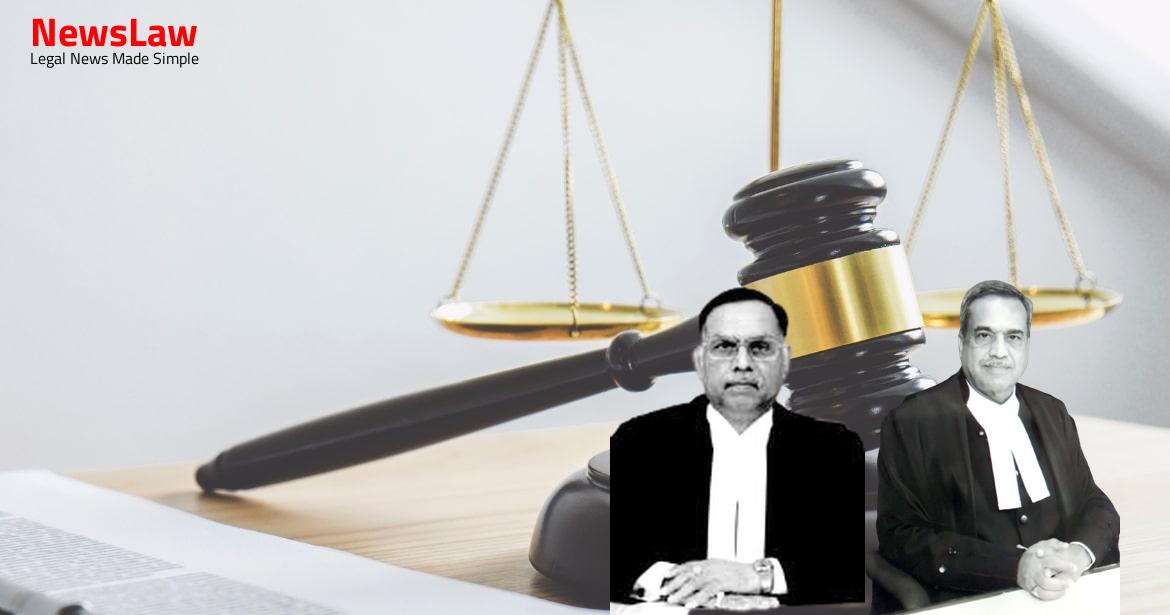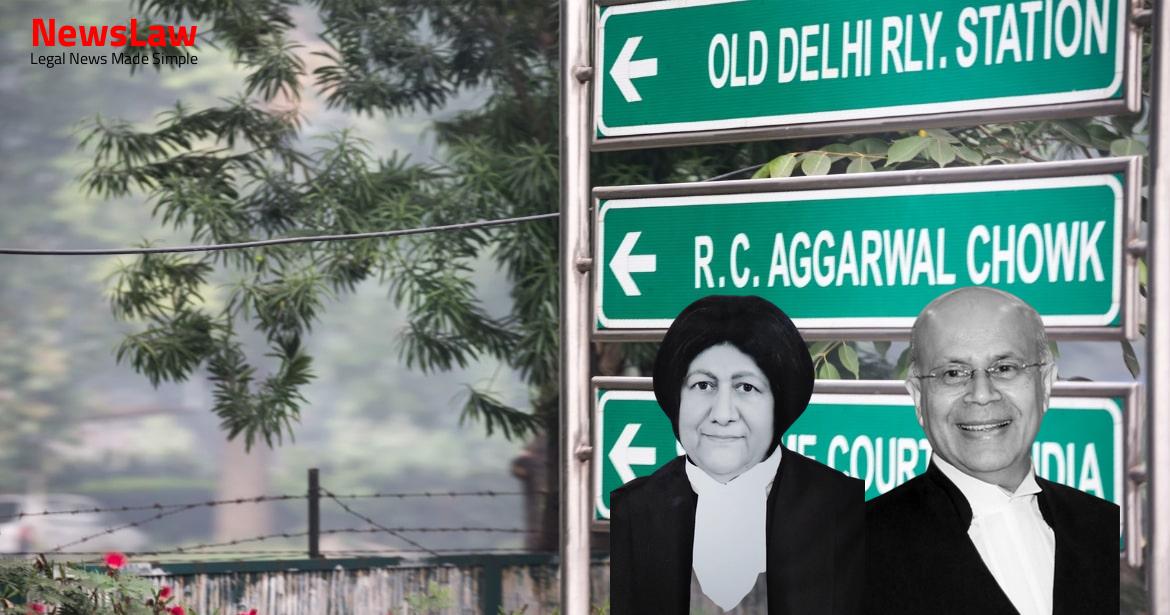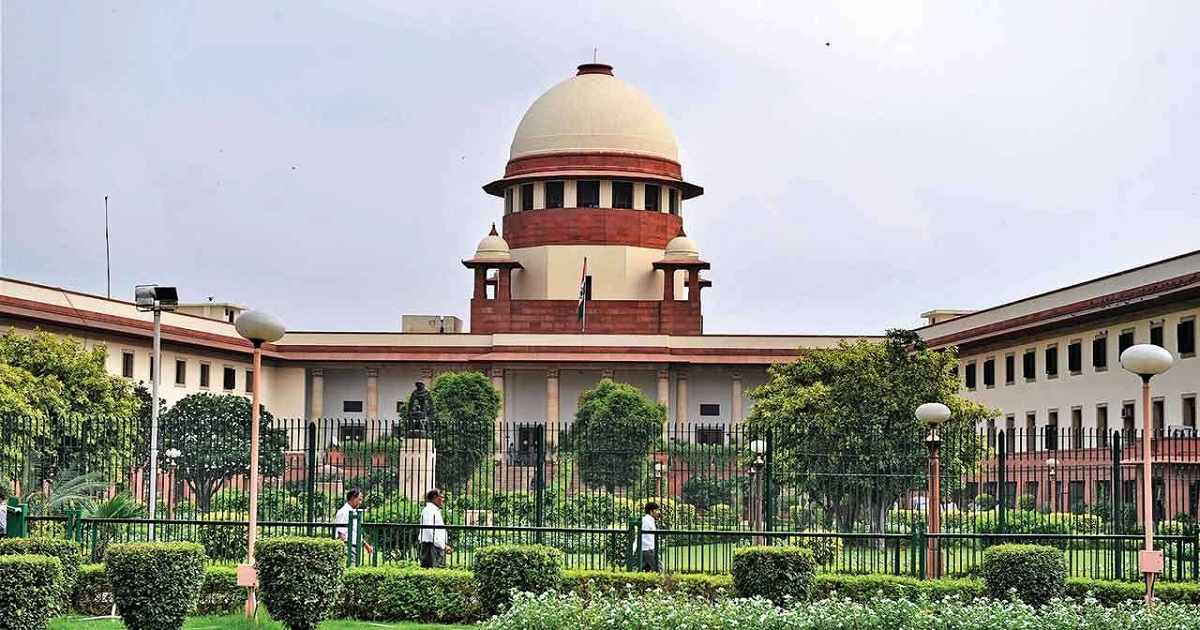The Government of India in its Ministry of Health and Family Welfare vide letter dated 01.12.1998 addressed to the Council, approved the decision of the Council to enhance the benefit of extension in age of retirement from 58 years to 60 years in respect of employees of the Council w.e.f.
By way of letter dated 31.10.2017, the Ministry of AYUSH clarified that the effect of the Cabinet decision referred to above would be applicable 2 only to the AYUSH doctors directly working under the Ministry of AYUSH and in the CGHS Hospitals.
It is stated that as per Press Information Bureau the Union Cabinet has taken the following decision:- “The superannuation age has been enhanced to 65 years in respect of doctors under the administrative control of the respective Ministry/Department [M/o AYUSH (AYUSH 3 Doctors), Department of Defence (civilian doctors under Directorate General of Armed Forces Medical Service), Department of Defence Production (Indian Ordnance Factories Health Service Medical Officers), Dental Doctors under D/o Health & Family Welfare, Dental doctors under Ministry of Railways and of doctors working in Higher Education and Technical Institutions under Department of Higher Education]”. The decision of the Cabinet is applicable to the AYUSH doctors directly working under the administrative control of Ministry of AYUSH i.e. By order dated 24.11.2017, the Ministry of AYUSH enhanced the age of superannuation to 65 years for the AYUSH doctors working in the Ministry of AYUSH and in CGHS Hospitals w.e.f. By notification dated 05.01.2018, the Ministry of Personnel, Public Grievances and Pensions, DoPT notified the Fundamental (Amendment) Rules, 2018 whereby Rule 56(bb) in the Fundamental Rules, 1922 (FRs) was substituted and the age of superannuation of AYUSH doctors was enhanced to 65 years. (2) In the Fundamental Rules, 1922, in rule 56, for clause (bb), the following shall be substituted, namely:— 5 “(bb) The age of superannuation in respect of General Duty Medical Officers and Specialists included in Teaching, Non- Teaching and Public Health sub-cadres of Central Health Service, AYUSH doctors, Civilian doctors under Directorate General of Armed Forces Medical Services, Medical officers of Indian Ordnance Factories Health Services, dental doctors working under Ministry of Health and Family Welfare, doctors of Indian Railways Medical Service and dental doctors under Ministry of Railways, doctors of General Duty Medical Officers sub-cadre of Central Armed Police Forces and Assam Rifles and Specialist Medical officers of Central Armed Police Forces and Assam Rifles shall be sixty-five years: Provided that notwithstanding anything contained in any other rules, above doctors except in Central Armed Police Forces and Assam Rifles shall hold the administrative posts till the date of attaining the age of sixty-two years and thereafter their services shall be placed in Non-Administrative positions.” Secy.” By letter dated 25.01.2018, the appellant Council circulated the clarification letter issued by the Ministry of AYUSH dated 31.10.2017 referred to in para 5 as above. It appears from the materials on record that the representation preferred by the respondent No 1 herein before the above was rejected and a notification dated 04.04.2018 was issued by the Council stating that the respondent No 1 herein would retire w.e.f. 04.2018 under Annexure 3 directing the Applicant to retire on 30.04.2018 on attaining age of 60 years, to be illegal, arbitrary unreasonable and discriminatory and quash the same and direct the Respondent to allow the Applicant to continue in the service upto 65 years as per amended rules. By order dated 17.04.2018
the CAT issued notice, however, declined to grant any interim relief as prayed for by the respondent No 1 herein. Since the Original Application is pending before the Tribunal, without expressing any opinion on the merits of the case, we dispose of this Writ Petition with an observation that since the Doctors who are similarly after continuing the age of 65 years after attaining the age of 60 years, let the Petitioner continue in the service and let the notice of superannuation under Annexure-3 shall remain stayed till disposal of the Original Application. This issue was considered by the Hyderabad Bench of the CAT vide order dated 04.09.2020, wherein it was observed that- “ Clause 34 of the bye-law makes it crystal clear that the Governing Body has to take a decision in regard to the enhancement of the retirement age. There is nothing in Clause 35 of the Bye-Laws to have an overriding effect on Clause 34 regarding retirement age. The assumption of the respondent No 1 that the FR-56, as amended from time to time, is automatically applicable to the Council employees is not correct since it is subject to the provisions of Clauses 34 & 35 respectively of the Bye-Laws. As per Clause 34 of the Bye-Laws, the rules governing the retirement of the government employees will be applicable to the employees of the Council as adopted by the Governing Body.
(viii) In the last, the CAT considered that even if the respondent No.1’s contention that he had treated patients was to be accepted, such acceptance could not have negated the decision taken by the Ministry of AYUSH in its clarification letter dated 31.01.2017, which was further accepted by the Council in its subsequent letter dated 25.01.2018. The Clause-34 and 35 of the bye-laws extends the force of the argument of the petitioner to be treated as AYUSH doctor, even though he has been appointed as Researcher. Hence, the order dated 02.11.2020 passed by the learned CAT, Cuttack Bench, Cuttack is liable to be quashed and accordingly, it is quashed.” (Emphasis supplied) 16.
The High Court recorded the said finding despite acknowledging that the respondent No 1 was appointed as a researcher 13 under the Research Council and his service conditions were governed by different laws. The said FR has been amended from time to time and the rule applicable in the present case i.e. (b) Recruitments, appointments and promotions to all posts shall be made according to the recruitment rules laid down by the Governing Body or designated competent authority for the posts. The Fundamental and Supplementary Rules and General Financial Rules of Government of India as amended from time to time shall apply mutatis mutandis to employees of the Central Council. Reliance placed by the respondent No 1 in its representation on the case of Salma Khatoon is equally inapt as the relevant rule in the said case was different from the Clause 34 of Bye-Laws herein. The Central Administrative Tribunal, Cuttack Bench (‘CAT’) rightly held that the assumption of the respondent No 1 that FR 56 is 16 automatically applicable is not correct as it is subject to Clause 34 of the Bye-Laws of CCRAS.
Diwan and Others, (1996) 3 SCC 454 para 10 at page 459.
Also Read: https://newslaw.in/?p=548
Krishnamurthy, (2015) 2 SCC 796 para 25-26 at page 806-807. The issue in the said case pertained to different dates of enhancement of age of superannuation of AYUSH and CHS doctors of NDMC. In the said case, the policy decision of enhancing the age of superannuation to 65 years was adopted by NDMC for AYUSH doctors but it was applied from a later date which was found to be discriminatory. The appointments to ITRA are made as per the provisions of the Institute of Teaching and 18 Research in Ayurveda Act, 2020. The terms of appointment specifically stated inter alia, in para 2 (vi) & (vii) thereof, that “Private or Consultancy service is strictly prohibited” and that “Other terms and conditions of service will be governed by the rules and instruction applicable to similar personnel under the Government of 19 India” respectively. Therefore, two factual aspects are admitted and it is beyond any doubt that (i) the respondent No 1 is an AYUSH Doctor and (ii) the Institute is under the administrative control of the Ministry of AYUSH. It is reiterated that only two conditions are required to be satisfied to avail the enhanced age of superannuation up to 65 years of age viz., (i) AYUSH Doctor and (ii) being under the Administrative Control of the Ministry. That the decision was a Cabinet decision and the same could not have been diluted or misinterpreted by the impugned letter of a subordinate functionary viz., a Senior Consultant working in the Ministry of AYUSH by excluding the AYUSH Doctors working in the autonomous bodies under the administrative control of the Ministry of AYUSH. The reason being first, there is no rationale or nexus with the object which it seeks to achieve i.e, exclusion of the AYUSH Doctors working in autonomous bodies and secondly, it creates an artificial distinction of AYUSH doctors working in the Ministry and elsewhere, although both are similarly qualified and discharge functions of OPD/IPD treatment of patients including surgery etc, albeit at different places. That even otherwise, the respondent No 1 is entitled to the benefit of enhanced age of retirement of 65 years on the strength of plain reading of Clause 34 of the Society Rules extracted @ Pg 12 of the Judgement by the High Court, on which extensive reliance is placed by the appellants contending that the applicability of the extension of age is dependent upon the decision to be taken by the Governing Body of 22 the autonomous body, and hence the Central Govt rule of age of superannuation is not automatic. – Therefore, the second part of Clause 34 really gives power to the Governing Body to retain an employee even after the prescribed age of superannuation provided the conditions for grant of such retention is met. 23 – While the age of superannuation of an employee of the Central Council shall be at par with the age of superannuation prescribed by the Central Government, the Governing body has the enabling power to retain the employee even beyond the age of superannuation in organisational interest. That similarly, AYUSH doctors working in CGHS have been granted increase in age up to 65 years vide letter dated 24.11.2017. The order of AYUSH Ministry dated 24.11.2017 extending the age of superannuation to 65 Years also endorses such a view.
The respondent No 1 worked from 25.04.2018 following the order of stay grated by the High Court till 05.04.2021 when stay was granted by this Court following which the services of the respondent No 1 were abruptly ended. The Intervenors/applicants have been receiving the Non-Practicing Allowance while working under CCRUM which clearly indicates that the Intervenors/applicants are indeed qualified doctors at par with the other Doctors who also get the same allowances. That the Government of India (Cabinet) vide its order has granted the benefit of enhancement of superannuation age to 65 years to the doctors under the administrative control of the respective Ministries/Department (Ministry of AYUSH) (AYUSH doctors) which is fully applicable to the doctors working under the appellant council but the Ministry of AYUSH erroneously by their mis-interpretation has excluded the benefits to doctors working under autonomous bodies like the council. Therefore, as per own interpretation made by the Ministry of AYUSH, the benefit of enhancement of superannuation of age is fully applicable to all doctors (working in any capacity including researcher) who are under the administrative control of AYUSH and when Govt. It is submitted that Non-Practicing Allowance has been given to the doctors working under Intervenor/applicants council and the said benefit was given to the Intervenor/applicants as well which clearly contradicts the stand of council that the Intervenors/applicants were not performing the duties of doctors. The Intervenors/applicants Council is an autonomous body under the Ministry of AYUSH, Government of India and the Council has a Governing Body comprising of the Union Minister-In-Charge of AYUSH as its President and Secretary, Ministry of AYUSH as its Vice President. The same is also contrary to the object for which the 29 Central Council is established. The aforesaid clarification would rather frustrate the objectives for which the Central Council was established. With a view to appreciate the rival contentions raised by the litigating parties before us, we must look into the Clauses 25(b), 34, 35 and 47 of 30 the Bye-Laws in the Memorandum of Association of the Central Council for Research in Ayurvedic Sciences: “Appointments 25. The Fundamental and Supplementary Rules and General Financial Rules of Government of India as amended from time to time shall apply mutatis mutandis to employees of the Central Council. In our view, the learned Senior Counsel appearing for the appellants is right in his submission that the decision of the governing body dated 27.12.2000 applied on 30.04.2018 i.e., the date of superannuation of the respondent No 1.
The principal argument canvassed by the learned Senior Counsel appearing on behalf of the respondent No 1 is that the provisions of FR 56(bb) would apply to the respondent No 1 in his capacity as an employee of the Council in view of Clause 35 of the Bye-Laws of the Council referred to above, by which the provisions of the FR and SR would apply to employees of the Council mutatis mutandis.
However, as there is a specific provision regarding superannuation in Clause 34, the rules governing the government services in respect of superannuation are not applicable to the employees of the Council unless it is in accordance with Clause 34 of the Bye-Laws. According to the learned Senior Counsel, the second part of the Clause 34 which reads “or as desired by the governing body” is merely an enabling provision empowering the governing body to take a decision whether an employee deserves to be retained beyond the prescribed age of superannuation.
The expression “the rules governing the retirement of employees of Government of India as amended from time to time” is separated from the rest of the part of the Bye-Law by the word “or” which is disjunctive and giving natural meaning to the said word separates the rules that may be framed by the Government of India and the rules that the Council may desire to frame as regards the age of retirement of the employees of the Council. Singh in the Principles of Statutory Interpretation (Thirteenth Edition 2012) page 485 has stated as follows: “The word ‘or’ is normally disjunctive and ‘and’ is normally conjunctive but at time they are read as vice versa to give effect to the manifest intention of the Legislature as disclosed from the context. We are also not impressed by the submission canvassed on behalf of the respondent No 1 that as the terms and conditions of the services of the 35 employees of the Council on all other aspects like the Provident Fund/GPF, Pension, Gratuity, Leave Rules, Scales of Pay, Conduct Rules and other conditions of services are the same as applicable to the employees of the Central Government as set out in Clauses 31, 32, 33, 42, 44 and 47 respectively of the Bye-Laws, the matter of age of superannuation of the respondent We may at this stage, refer to the following decision in Tamil Nadu Education Department Ministerial and General Subordinate Services Association and Others v. It is too late in the day for the respondent No 1 to raise all such issues including infringement of Article 14 of the Constitution on the ground of artificial distinction between the Research Assistant and AYUSH Doctors.
They claimed that their age of retirement should be the same as the age of retirement of Bihar Engineering College which was a college of the Patna University. But the terms and conditions of service of teachers in the three engineering colleges of the State are different from the terms and conditions of service of the university teachers employed 37 in Bihar Engineering College at Patna. Application of Article 14, in these circumstances, is misconceived, when there are valid criteria for differentiating between the service conditions in the two sets of colleges. Article 14 of the Constitution has no application having regard to the facts of the present case.
Both these decisions have been relied upon to fortify the contention that the employees of autonomous bodies are governed by their own rules and Bye-Laws and they cannot claim parity with the government employees. Bye-law 28 provides that till such time NWDA frames its rules governing service conditions of the employees, rules and orders applicable to the Central Government employees shall apply mutatis mutandis, subject to such modifications as made by NWDA from time to time. The High Court… is not correct in thinking that there is any compulsion on K SRTC on the mere adoption of Part III of KSR to automatically give all enhancements in pension and other benefits given by the State Government to its employees.” Thus, as the appellants are governed by the CPF Rules, 1982, the OM applicable to the Central Government employees is not applicable to them.”
Thus, the plea of the employees of NWDA to be treated on a par with their counterparts in the Central Government under sub-rule (6)(iv) of Rule 209 of the General Financial Rules, merely on the basis of funding is not applicable. The said discrimination cannot be invoked in cases where discrimination sought to be shown is between acts of two different authorities functioning as State under Article 12. Merely because such autonomous bodies might have adopted the Government Service Rules and/or in the Governing Council there may be a representative of the Government and/or merely because such institution is funded by the State/Central Government, employees of such autonomous bodies cannot, as a matter of right, claim parity with the State/Central Government employees. Iacats, reported in (1997) 7 SCC 334, the respondent therein had filed a writ petition in the Guahati High Court challenging her retirement at the age of 55 years on the ground that in other nursing services under the military establishment the age of retirement was 58 years.
Hence, even if it is averred 42 that the nature of work involved in the two posts is similar, the same cannot be a ground to increase or alter the service conditions of an employee as each post is governed by its own set of rules. This however does not appeal to us and we are inclined to agree with the findings of the Tribunal and the Delhi High Court that the classification is discriminatory and unreasonable since doctors under both segments are performing the same function of treating and healing their patients. The order of AYUSH Ministry dated 24.11.2017 extending the age of superannuation to 65 Years also endorses such a view. 14019/4/2016EI (AYUSH)) dated 24.11.2017 must be retrospectively applied from 31.05.2016 to all concerned respondent doctors, in the present appeals.
During the pendency of the writ petitions, the Ministry of AYUSH issued an order dated 24.11.2017 enhancing the age of retirement of AYUSH 44 doctors also to 65 years, but w.e.f. It is only when this Court stayed the operation of the impugned order passed by the High Court while issuing notice that the service of the respondent No 1 came to an end. The first cardinal principle of law that governs the exercise of extraordinary jurisdiction under Article 226 of the Constitution, more particularly when it comes to the issue of a writ of certiorari is that in granting such a writ, the High Court does not exercise the powers of Appellate Tribunal. The second cardinal principle of exercise of extraordinary jurisdiction under Article 226 of the Constitution is that in a given case, even if some action or order challenged in the writ petition is found to be illegal and invalid, the High Court while exercising its extraordinary jurisdiction thereunder can refuse to upset it with a view to doing substantial justice between the parties.
Also Read: https://newslaw.in/?p=554
While administering law, it is to be tempered with equity and if the equitable situation demands after setting right the legal formulations, not to take it to the logical end, the High Court would be failing in its duty if it does not notice equitable consideration and mould the final order in exercise of its extraordinary jurisdiction. … In granting a writ of ‘certiorari’, the superior court does not exercise the powers of an appellate tribunal. Basappa (supra), the Constitution Bench of this Court in the case of Hari Vishnu Kamath (supra), laid down the following propositions as well established: “(1) Certiorari will be issued for correcting errors of jurisdiction, as when an inferior court or tribunal acts without jurisdiction or in excess of it, or fails to exercise it.
A writ of certiorari can be issued for correcting errors of jurisdiction committed by inferior courts or tribunals: these are cases where orders are passed by inferior courts or tribunals without jurisdiction, or is in excess of it, or as a result of failure to exercise jurisdiction. Similarly, if a finding of fact is based on no evidence, that would be regarded as an error of law which can be corrected by a writ of certiorari. The adequacy or sufficiency of evidence led on a point and the inference of fact to be drawn from the said finding are within the exclusive jurisdiction of the Tribunal, and the said points cannot be agitated before a writ Court. Where the jurisdiction of a body depends upon a preliminary finding of fact in a proceeding for a writ of certiorari, the court may determine, whether or not that finding of fact is correct. In the words of Lord Reid: “But there are many cases where, although the tribunal had jurisdiction to enter on the enquiry, it has done or failed to do something in the course of the enquiry which is of such a nature that its decision is a nullity. I do not intend this list to be exhaustive.” So far as the errors of law are concerned, a writ of certiorari could be issued if an error of law is apparent on the face of the record.
Mallikarjun Bhavanappa Tirumale, reported in AIR 1960 SC 137.) However, in our opinion, such a test should not be applied in a straitjacket formula and may fail because what might be considered by one Judge as an error self-evident, might not be considered so by another Judge. A finding of fact, howsoever erroneous, recorded by a court or a tribunal cannot be challenged in proceedings for certiorari on the ground that the relevant and material evidence adduced before 52 the court or the tribunal was insufficient or inadequate to sustain the impugned finding. This Court observed as under: “…
Case Title: CENTRAL COUNCIL FOR RESEARCH IN AYURVEDIC SCIENCES Vs. BIKARTAN DAS (2023INSC733)
Case Number: C.A. No.-003339-003339 / 2023



